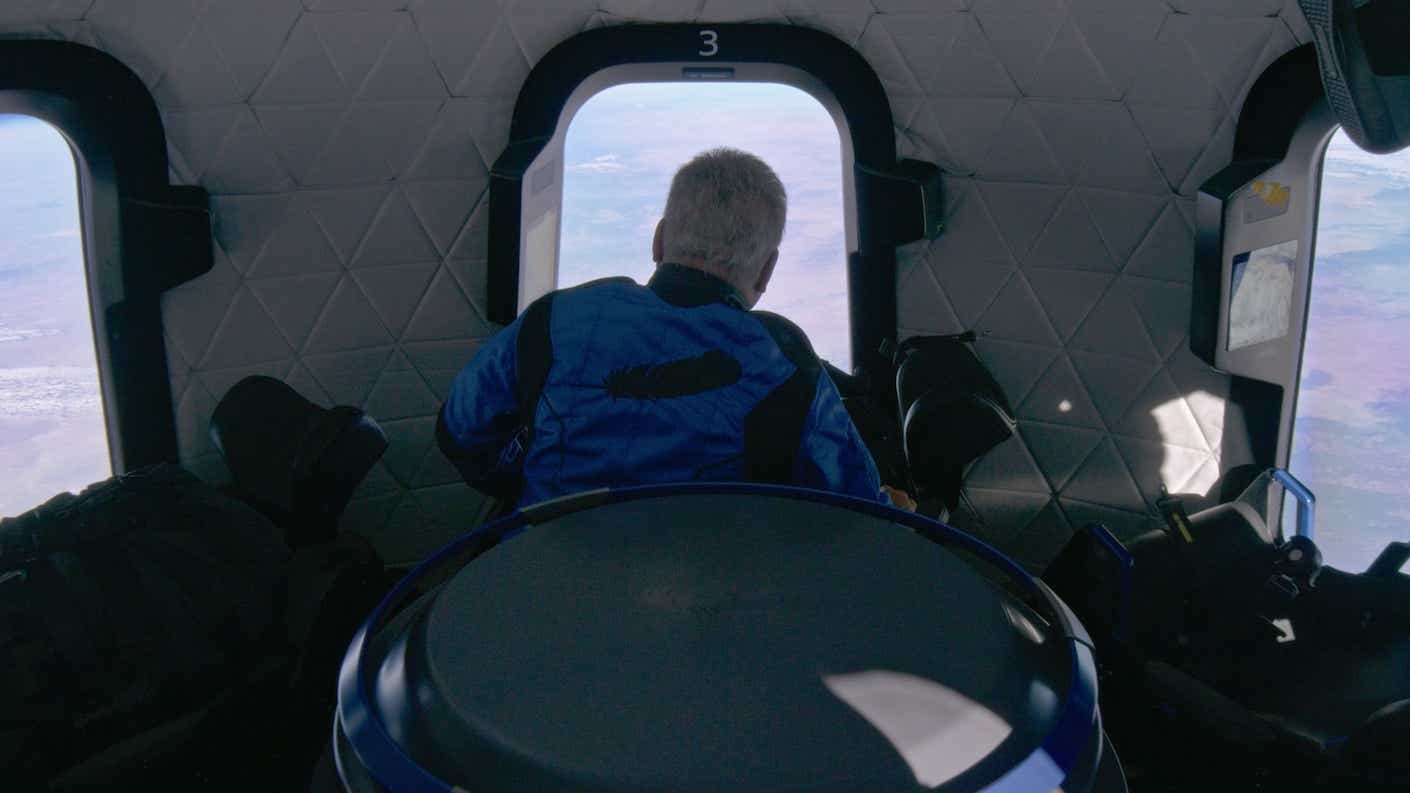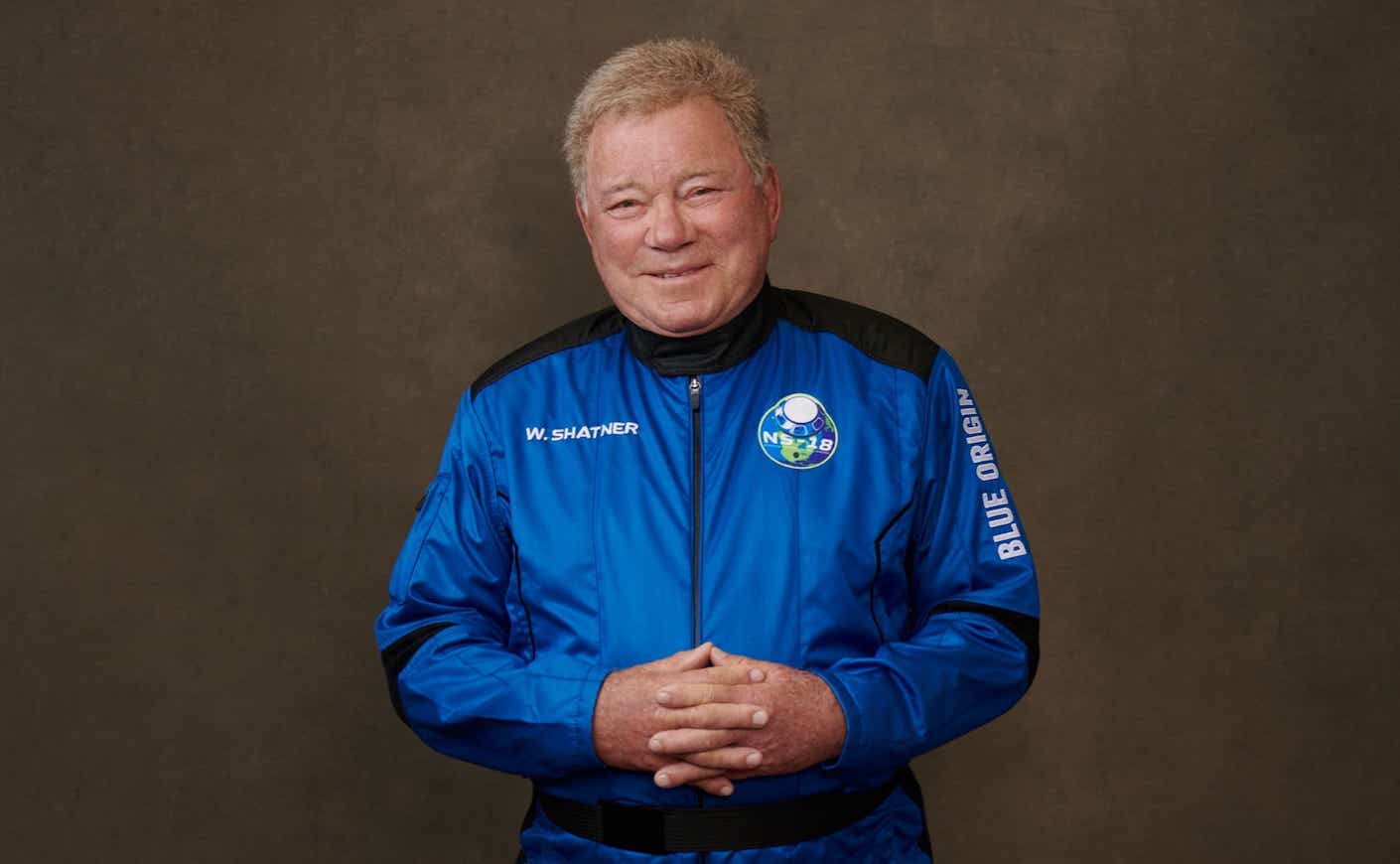It’s been about 55 years since William Shatner first set foot on a spacecraft in 1966, but 2021 was the year he actually traveled to space. Shatner was aboard the Blue Origin with Jeff Bezos earlier this year for its second human spaceflight. Which means that, at age 90, Shatner is now the oldest person to fly into space.
Why Shatner? As you probably recall, the actor played the original Captain James T. Kirk in the Star Trek media universe. And apparently, Bezos’ “dreams of space travel” were inspired by the original Star Trek series.
Shatner, the actor — and now commercial astronaut — was profoundly moved by his short visit to space. But does he want to go back? And more importantly, would he consider being beamed back up to the Starship Enterprise? We asked for his thoughts, and more info about his Amazon Prime Video documentary, Shatner in Space.
KCM: What’s the biggest lesson that you came back down to Earth with, after your space flight?
William Shatner: I’m glad they had enough fuel to get us back! The greatest lesson coming back was…gratefulness. No, that’s not a lesson. It was more so that the mechanics mankind has made really work.
Did it change your outlook on life at all?
I’ve always felt like an ecologist, based on what I’ve learned from Rachel Carson’s book Silent Spring, and then a well-known ecologist by the name of Michael Tobias, who’s written many books on the planet, what we’re doing to it, and what we need to do. He and I became acquainted when he asked me to do a series called Voice of the Planet. We went all over the world and ended up in the Himalayas, where I became even more conscious of what is now a great threat to humanity. So all these years, I’ve been an ecologist and going up into space made me even more aware, from theory to practice.
You started on Star Trek, a fictional version of space travel, and ended up in real space. Tell us about that journey.
Well, one is fiction, of course. Then in reality you’re intellectually observing it, and then profoundly feeling it. And it becomes part of your being: That’s quite a difference.
Would you go back into space if you had the opportunity?
No. I went up, and I had this profound experience. When I’m finished promoting this documentary, I will pull back from discussing it, because it’s like talking about a love affair over and over again. People say to you, “Oh my God, you’re in love, with George, that’s wonderful. Tell me about it.” And by about the third or fourth time, let alone the hundredth time, you don’t wanna see George ever again. Not that I feel that way, because space exploration is critically important, but I don’t want to go up again and mitigate the profound, loving, exciting, ominous experience I had.

As someone who considers themselves an ecologist, do you worry that humans colonizing space will lead to us destroying another planet?
The idea of colonizing space isn’t like getting on a wooden ship and floating with the wind and being driven. Colonizing space would require almost everything on Earth. What we can do is what Jeff Bezos is advocating, and that is putting industry into space. So 300 miles above us would be an electrical generator station, burning whatever it burns, and sending that electrical energy down to earth. All of that is available to us. Now, all we gotta do is get it up there. So rather than colonizing space, I think his idea of getting heavy industry up there and getting it off the Earth, and making the Earth more park-like again makes more sense to me. And that’s what he hopes to achieve with Blue Origin.
Looking at history, when there was just this little narrow band of civilization on the East Coast, they sent explorers across to explore the United States at great cost. They were being funded by the government or private industry to explore what was out there that we could make use of. That was the beginning of exploration. So the commercial impulse begat the civilization or the destruction of the other countries. It was the capitalist impulse that started civilization, really. So that’s what’s happening here.
The government is sending out spaceships to go around the earth and make observations and land on the moon — apparently, there are all kinds of good things there. But to get as far as Mars, that’s such a dream. I don’t think there’s any question they’re gonna find life, but getting there and colonizing Mars is so farfetched, it’s almost as imaginative as Star Trek. But what Jeff Bezos is doing is much more practical.
Speaking of Star Trek, it seems like the content inspired by it is never-ending — kind of like space. Would you ever consider appearing in one of the new Star Trek movies or shows?
If they wrote the right role and paid me enough money, yes, of course, I would.









